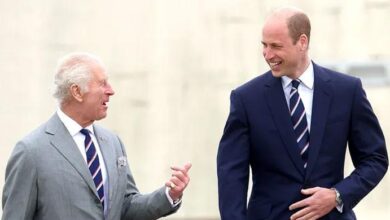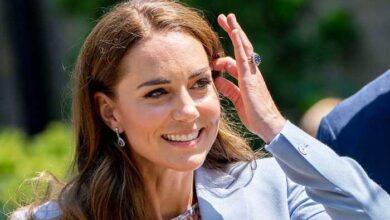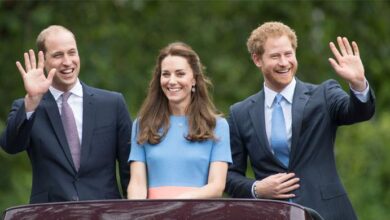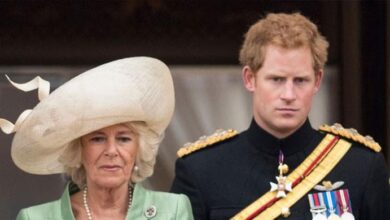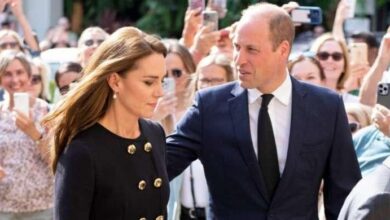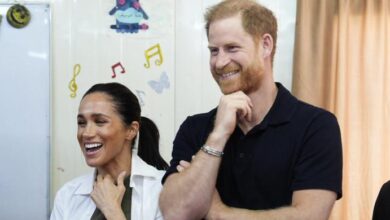King Charles Sparks Debate After Allowing Andrew Mountbatten to Keep His Falklands War Medal Amid Royal Fallout
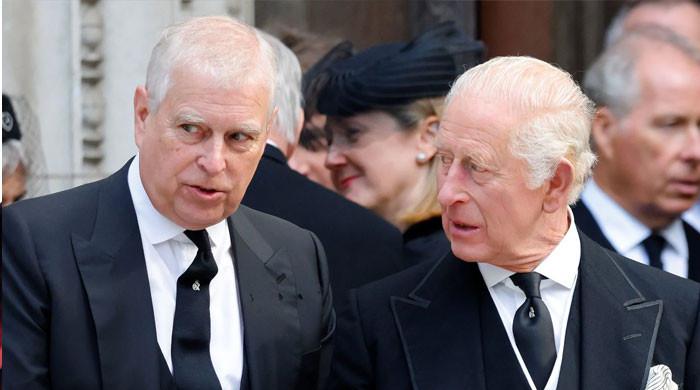
The recent decision by King Charles to allow his brother, Andrew Mountbatten to retain his Falklands War medal marks a significant gesture amidst ongoing royal controversies. Despite having all royal titles and honors stripped away, Andrew’s military service medal remains with him. This decision reflects the complex relationship between personal service achievements and royal privileges.
Andrew Mountbatten’s military background is notable, having served 22 years in the Royal Navy. His role as a Sea King co-pilot during the Falklands War in 1982 earned him the South Atlantic Medal with a rosette. This medal is awarded to a select group of service members, highlighting his active participation in the conflict.
The Falklands War medal holds special significance as it stems from Andrew’s direct military involvement, rather than inherited royal status. Receiving such an honor underscores his contribution to national service, independent of his royal duties. This distinction adds weight to the decision to allow him to keep this medal.
King Charles’s decision underscores a nuanced approach towards honoring military service, even for those who face public disgrace elsewhere. The preservation of Andrew’s medal indicates recognition of his years of active duty, despite recent scandals. It also serves to differentiate personal achievements from controversial aspects of his private life.
The recent stripping of Andrew’s honorary rank as vice admiral by Defense Secretary John Healey further signals a departure from royal privileges. This step was among the last formal links to his former, prominent role within the Royal Navy. Losing this rank symbolizes the broader disassociation from royal duties.
The controversy surrounding Andrew has been intense, primarily due to his association with Jeffrey Epstein, a convicted sex offender. Multiple allegations of sexual assault by Virginia Giuffre have tarnished his reputation. Andrew has denied all accusations, but public perception continues to be heavily affected.
In 2022, Andrew settled Giuffre’s lawsuit for an undisclosed sum, a move that marked a significant turning point. The settlement essentially ended his legal battles but did not restore his royal standing. Public and institutional disdain persisted into this period of reduced royal influence for him.
Following the scandal, Queen Elizabeth II, Andrew’s mother, took decisive action by stripping him of military affiliations and patronages. This move was part of her broader efforts to protect the monarchy’s image and maintain public trust. It also formally distanced her from her son’s controversies.
Despite the stripping of royal honors, the decision to allow Andrew to keep his military medals suggests some degree of respect for his service record. It emphasizes a separation of personal conduct from military achievements, acknowledging his contributions during wartime.
This choice by King Charles can be interpreted as a desire to preserve the integrity of military honors. Recognizing Andrew’s wartime service, despite his public scandals, underscores a respect for sacrifice and duty. However, it also raises questions about the standards applied to royal medals.
The public reaction to Andrew’s retention of his Falklands medal has been mixed. Some view it as a necessary recognition of service, while others see it as inappropriate given the ongoing scandal. The decision reflects broader debates about honor, accountability, and royal tradition.
In the larger context, the royals continue to navigate complex issues of reputation, service, and public perception. Decisions like allowing Andrew to keep his medal highlight tensions between tradition and accountability. They also demonstrate the subtle balancing act the monarchy often faces.
The case of Andrew Mountbatten’s medals is a reminder that military honors can sometimes stand apart from a person’s personal controversies. Yet, such decisions inevitably fuel ongoing discourse about the values upheld by the royal family and the nation.
As the royal family progresses through challenging times, how they handle individual honors remains a reflection of their evolving identity. The case of Andrew’s Falklands War medal exemplifies this delicate interplay of respect, tradition, and modern scrutiny.
In conclusion, King Charles’s allowance for Andrew to retain his Falklands War medal serves as a symbol of recognition of military service amid a controversial backdrop. It highlights the complex considerations involved in honoring personal achievement while managing public expectations and scandals.
This unique decision emphasizes that while royal privileges can be revoked or diminished, individual acts of service may still command a degree of respect. It remains to be seen how future decisions will shape the royal legacy of honoring service amidst ongoing controversy.

